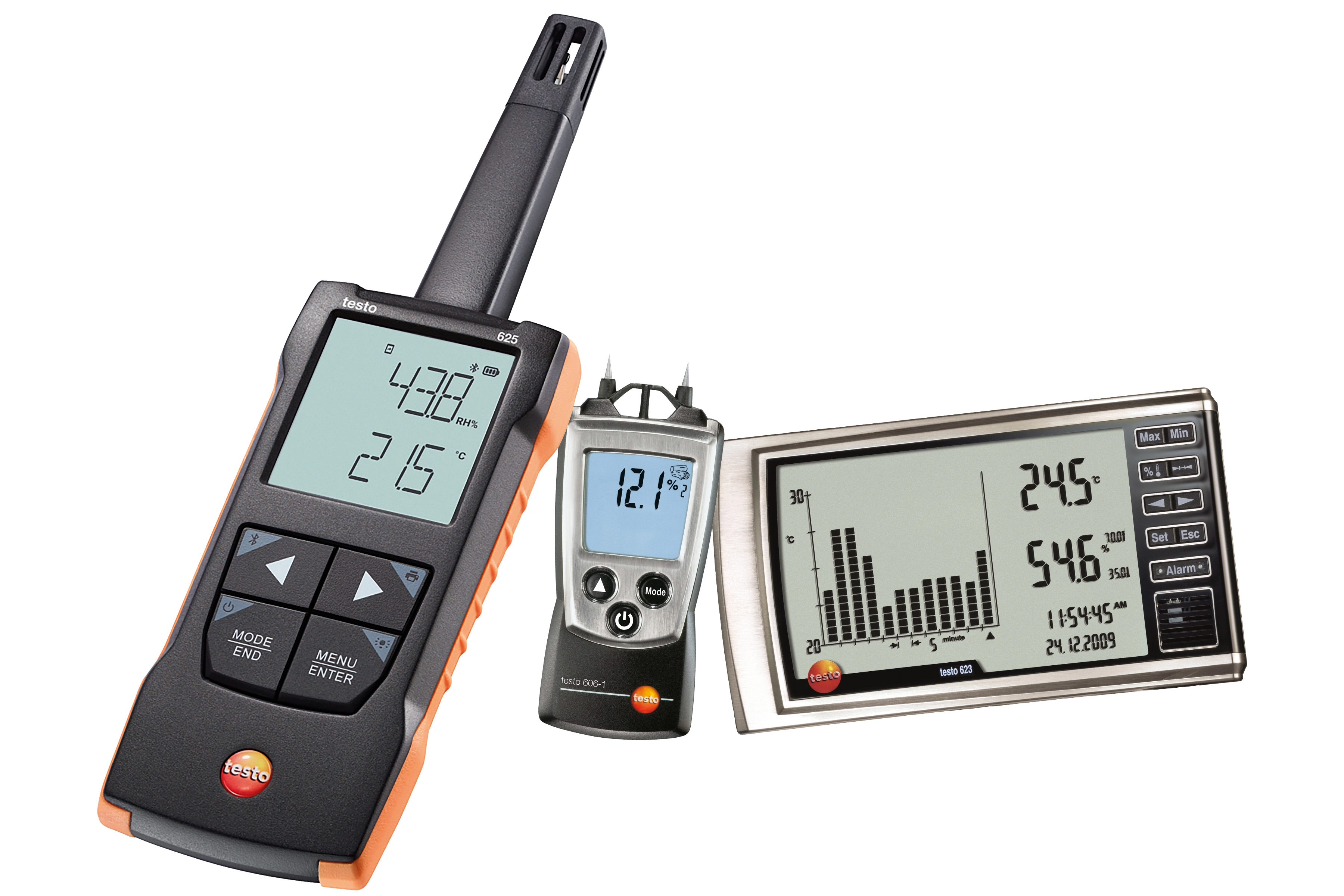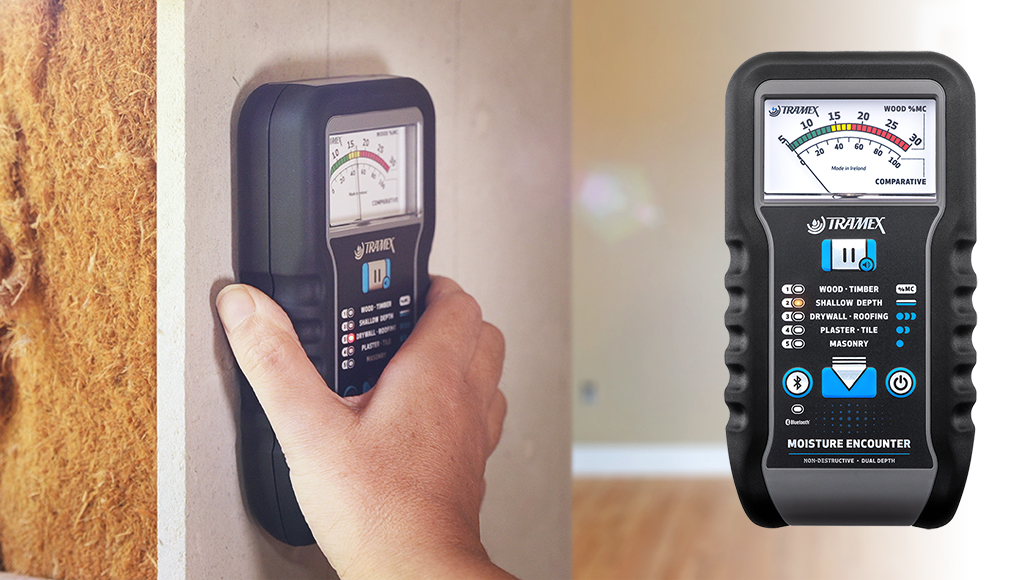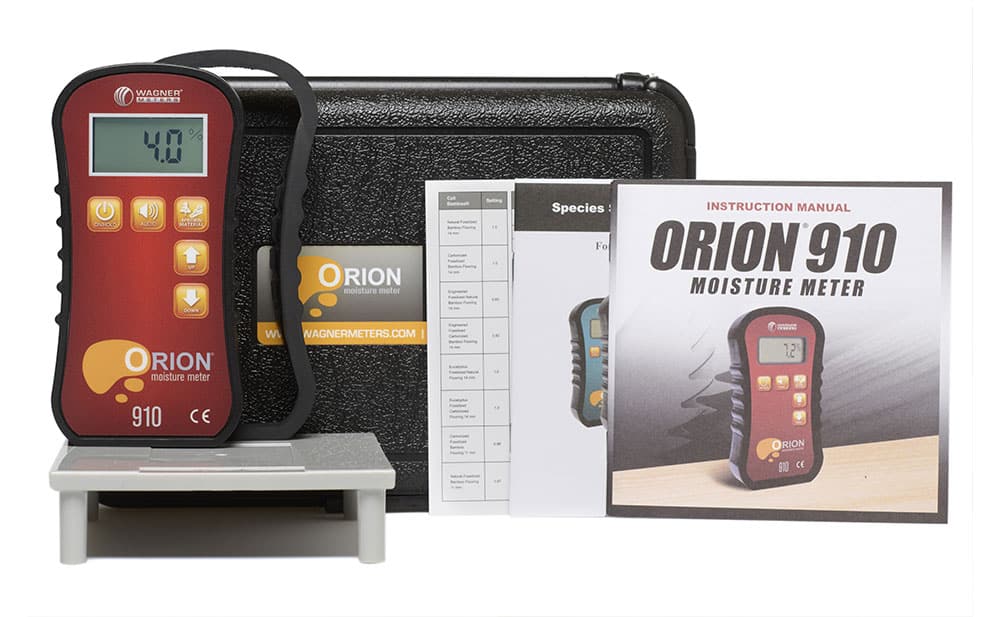The Ultimate Guide to Moisture Meters: A Comprehensive Introduction and Exactly How They Can Conserve You Cash
In the realm of structure upkeep, building, and various markets, the relevance of properly measuring wetness degrees can not be overemphasized. Moisture meters function as vital tools in discovering and keeping an eye on moisture material in materials, helping in protecting against costly damages and guaranteeing the high quality of products. Recognizing the nuances of different types of moisture meters, their applications, and the possible cost-saving advantages they supply can be a game-changer for experts and organizations alike. Finding how these gadgets can not only enhance processes yet also add to monetary savings is a journey worth embarking on.
Kinds of Moisture Meters
One usual type is the pin-type wetness meter, which measures the electric resistance between 2 pins placed right into a product. Pinless wetness meters, on the other hand, usage electromagnetic sensor plates to scan a larger location without creating damage to the material's surface area.
In addition, there are additionally specialized moisture meters developed for details products like grain, hay, or soil. These meters supply accurate dampness readings tailored to the unique buildings of the product being checked. Infrared moisture meters gauge the thermal residential or commercial properties of a product to identify its dampness web content non-invasively, making them helpful for applications where pin or pinless meters may not be suitable. Understanding the different sorts of dampness meters available can assist industries select the most ideal tool for their specific dampness measurement needs.

Advantages of Utilizing Moisture Meters

Additionally, making use of moisture meters can lead to raised power performance. In agricultural settings, wetness meters play an important function in enhancing crop yields by enabling farmers to keep an eye on dirt moisture levels and make educated watering decisions.
How to Pick the Right Moisture Meter
Choosing the proper moisture meter involves thinking about key variables such as product compatibility, measurement variety, and calibration precision. When selecting a moisture meter, it's important to ensure that the meter appropriates for the particular product you will be testing. Different materials have varying electrical residential properties that can impact moisture analyses, so picking a meter made for your material is vital for precise outcomes. Additionally, take into consideration the dimension variety of the wetness meter. Make certain that the meter can identify moisture levels within the range needed for your applications. Calibration accuracy is another critical variable to bear in mind (Moisture Meter). Go with a moisture meter with reliable calibration to make certain specific and constant readings. Some meters might need periodic calibration changes, so comprehending the calibration process is essential. By carefully assessing these aspects, you can select a wetness meter that satisfies your needs and provides exact wetness dimensions for your projects.
Appropriate Techniques for Moisture Meter Use
To make certain precise wetness analyses and take full advantage of the effectiveness of a wetness meter, using correct techniques is essential. When making use of a site link pin-type moisture meter, place the pins or probes right into the product being tested until they make complete get in touch with. By adhering to these proper strategies, customers can count on their moisture meter to offer trustworthy wetness levels, assisting in stopping expensive damages or making sure high quality in numerous applications.

Cost Savings With Moisture Meter Applications
Exactly how can the critical utilization of dampness meters lead to substantial price savings across various markets? In the agriculture market, moisture meters aid in identifying the optimum time for harvesting plants, protecting against over-drying or excess dampness that can impact the last product's high quality.

Additionally, in the food handling market, wetness meters are crucial for keeping an eye on item high quality and making certain compliance with safety policies. By accurately measuring wetness content in foodstuff, producers can stop perishing, keep quality, and minimize waste, resulting in substantial price savings. Overall, the calculated application of dampness meters is a beneficial financial investment that can result in substantial price reductions and boosted effectiveness across various sectors.
Verdict
In conclusion, dampness meters are valuable devices for identifying and measuring dampness levels in different products. By making use of the right moisture meter and complying with correct methods, customers can properly prevent expensive problems created by excess wetness.
Wetness meters serve as important tools in finding and keeping an eye on moisture content in products, helping in preventing costly damages and guaranteeing the top quality of items. Infrared moisture meters measure the thermal homes of a product to determine its dampness content non-invasively, making them beneficial for applications where pin or pinless meters might not be suitable.Moisture meters use invaluable benefits in accurately evaluating and keeping track of moisture degrees in varied materials and atmospheres. In farming settings, dampness meters play a crucial role in click to read more enhancing plant returns by allowing farmers to keep track of dirt wetness degrees and make educated watering choices.In verdict, wetness meters review are useful tools for gauging and identifying wetness degrees in numerous products.
Comments on “Exactly how to Utilize a Moisture Meter to Find Surprise Water Damages in Your Building”